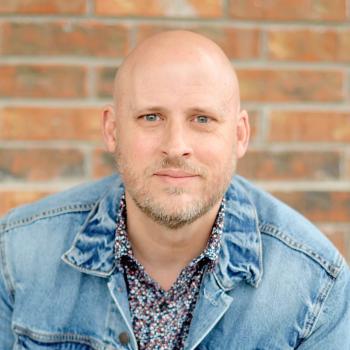I nearly fell out of my chair. I had just handed out a reading selection from the New York Times and was observing as my students read quietly when one, sitting near the back, broke the silence to ask what exactly the author, David Brooks, meant by the word "morality."
It was one of those dreaded moments when a student's question stumps the professor. Except this wasn't an obscure question requiring me to conjure a specific detail from a reading I'd done long ago. No, this was a very straightforward inquiry into the meaning of the word morality. I stuttered out something about one's ability to choose between right and wrong and, seemingly satisfied, the student went back to reading.
The op-ed I asked them to read was David Brooks' "If It Feels Right..." The piece is occasioned by a study, conducted in 2008 and reported on in a new book entitled Lost in Transition, by Notre Dame sociologist Christian Smith and several of his colleagues, which found that, as Brooks reports it, young people "just don't have the categories or vocabulary" to answer questions "about right and wrong, moral dilemmas, and the meaning of life."
Overwhelmingly, the study found that extreme individualism prevented the young adults from making any general moral statements. That is, when pressed, they would admit that they make moral choices based on how they feel or what makes them happy, but they consistently expressed the sentiment that these kinds of decisions are personal, and thus they could not comment on what others should do.
Brooks rightly points out that this is a failing on the part of "adult America"; the young people's families, schools, and religious institutions overemphasized individualism to the point where the youth no longer recognize the need for a community-endorsed moral code. Even churches preach a gospel that is wrapped in modernist philosophy, which emphasizes the individual and subjective experience. The language of personal saviors, and the like, reinforces this individualism.
I asked students in another class who also read and discussed the op-ed how they make moral decisions, and all of their answers only considered their personal feelings on any given matter. The Christianized version of this, of course, allows for personal feelings to be replaced with the Holy Spirit's direction, but, as I found out through further questioning, there really was no difference in their minds between the two. When I asked them what their generation's leading mantra might be, the first student who responded said hesitantly, "Just do it?"
I had a sense that results of the study conducted by Smith, et al, were correct, though I was honestly blown away by just how correct they were. It was not an unintelligent student that inquired as to Brooks' use of the word "morality," in fact it was her inquisitiveness that made her care enough to inquire. Further, having taught Millennials for the better half of the last decade, I echo Brooks assertion, which he makes twice, that the results of this study don't mean that America's young people are immoral. Rather, they have been the recipients of an education that was informed by a philosophy that was deemed irrelevant before they were born, but whose trickle down effect is still very much felt.
Elsewhere, in the places you might not expect it, but in places that are closer to the source of contemporary philosophy such as in the arts and entertainment, I contend that there are glimmers of hope and change. As I continue to strive to show, both here and elsewhere (most notably at my monthly column at SoulPancake, "Not Your Mother's Morals"), popular culture storytellers—novelists, screen writers, filmmakers, musicians, journalists—are filling in for the institutions that have failed the youth by over-emphasizing the individual.
I have no doubt that institutions will catch up. Churches are already shifting their focus away from the individual and back to a communal experience of faith. The rampant individualism that now dominates is subject to cracks and fissures. Besides, as Brooks points out, "Many of these shortcomings will sort themselves out as these youngsters get married, have kids, enter a profession or fit into more clearly defined social roles." But, in the meantime, institutions like the church have lost much of their significance as creators and perpetuators of a moral framework; ironically, they have ceded this role, in many ways, to popular culture.
9/20/2011 4:00:00 AM





